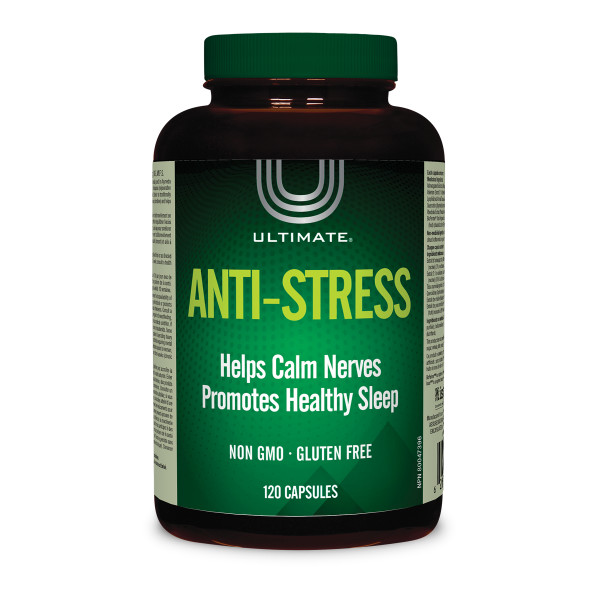Chronic daily stress is detrimental to both mental and physical health, impacting
sleep and exhausting the body’s stress-coping mechanisms. Ashwagandha
(Withania somnifera) is a plant in the nightshade family that has been used traditionally in Ayurvedic medicine to improve the body’s resistance to mental and physical stress. (1) Its main active phytochemicals are a group of steroidal alkaloids and lactones known as withanolides. (2)
As an adaptogen, ashwagandha has an important role in natural stress relief and has been shown to improve self-reported and physiological markers commonly associated with stress. (2) In a placebo-controlled study, healthy adults suffering from mild stress took a single 240 mg dose of ashwagandha extract per day. After 60 days of supplementation, participants were found to have a 41% reduction in ratings of nervousness and a 30% (near-significant) reduction on scales of unhappiness, nervousness, and stress. Participants were also shown to have lower levels of the stress hormone cortisol, compared to the placebo. (2)
Sleep helps rejuvenate the body both physically and biochemically. Ashwagandha is a recognized Rasayana (rejuvenation tonic) in Ayurvedic medicine with the ability to aid sleep. This may be related to its cortisol-lowering effects, which is important for maintaining a normal circadian rhythm. (3) A placebo-controlled trial examined the effects of daily 125 mg, 250 mg, and 500 mg doses of ashwagandha extract on stressed patients for 60 days. All doses were shown to significantly improve Hamilton anxiety scale measures of stress, including symptoms of fatigue and sleeplessness. Biochemical measures of stress, including blood levels of cortisol, fasting glucose, lipids, markers of oxidative stress, and the androgen ehydroepiandrosterone, were shown to improve in a dose-dependent manner. (3)
Rhodiola (Rhodiola rosea) is traditionally used in herbal medicine to temporarily relieve symptoms of stress, such as mental fatigue and feelings of weakness. (4) It is one of the best-known adaptogens available, with studies supporting its ability to strengthen the body against chemical, biological, and physical stressors. Because chronic stress interferes with memory and mental well-being, rhodiola can be used to enhance cognitive function, such as mental focus and stamina. It also provides antioxidants. (5)
Valerian (Valeriana officinalis) is traditionally used in herbal medicine to help relieve nervousness (calmative) and promote sleep. It is the most common herbal remedy used in the United States and Europe for inducing sleep. (6) Its mild sleep-inducing effects are considered non-habit forming and do not have a negative impact on sleep structure. A systematic review of valerian studies on doses ranging between 90–600 mg per day found that patients taking valerian had an 80% greater rate of improved sleep quality than placebo groups. (7)
Quercetin, an antioxidant bioflavonoid found in fruits and vegetables, has been shown to improve the body’s antioxidant status. (7) Animal studies also support its thera- peutic potential for conditions related to stress. Piperine is the main active component of black pepper and is recognized for enhancing the bioavailability of quercetin. (8)


Reviews
There are no reviews yet.